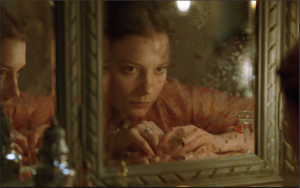RICHARD’S WEEKEND MOVIE REVIEWS FROM CP24! FRIDAY JULY 3, 2015.
 Richard’s “Canada AM” reviews for “Terminator: Genisys,” “Magic Mike XXL,” “Madame Bovary” and “Infinitely Polar Bear.”
Richard’s “Canada AM” reviews for “Terminator: Genisys,” “Magic Mike XXL,” “Madame Bovary” and “Infinitely Polar Bear.”
Watch the whole thing HERE!
 Richard’s “Canada AM” reviews for “Terminator: Genisys,” “Magic Mike XXL,” “Madame Bovary” and “Infinitely Polar Bear.”
Richard’s “Canada AM” reviews for “Terminator: Genisys,” “Magic Mike XXL,” “Madame Bovary” and “Infinitely Polar Bear.”
Watch the whole thing HERE!
 Richard’s “Canada AM” reviews for “Terminator: Genisys,” “Magic Mike XXL,” “Madame Bovary” and “Infinitely Polar Bear.”
Richard’s “Canada AM” reviews for “Terminator: Genisys,” “Magic Mike XXL,” “Madame Bovary” and “Infinitely Polar Bear.”
Watch the whole thing HERE!
 Anyone unfamiliar with the novel or countless retellings of Gustave Flaubert’s “Madame Bovary” could be forgiven in thinking Sophie’s Barthes’s version is some sort of period film noir. Like the classic noirs it begins at the end with the tragic fate of its protagonist and then ricochets backwards to the start to show how the main character met their fate.
Anyone unfamiliar with the novel or countless retellings of Gustave Flaubert’s “Madame Bovary” could be forgiven in thinking Sophie’s Barthes’s version is some sort of period film noir. Like the classic noirs it begins at the end with the tragic fate of its protagonist and then ricochets backwards to the start to show how the main character met their fate.
If the film was set in the 1940s instead of the 1870s Emma Bovary (Mia Wasikowska) could have made a convincing femme fatale. Like the best noir characters she is ambitious, philandering and has a taste for the finer things in life.
Married to humble country doctor Charles Bovary (Henry Lloyd-Hughes) she longs for the bright lights of Paris. To elevate her status she engages in a series of illicit affairs with wealthy men—Leon Dupuis (Ezra Miller) and The Marquis (Logan Marshall-Green)—but is ultimately done in by her short-sightedness, spendthrift ways and social climbing. Drowning in debt, she is “standing under an apple tree longing for the scent of orange blossom.”
The problem with this “Madame Bovary” adaptation lies with the main character. She is the architect of her own doom and to my eye a thoroughly unlikeable character. As her life crumbled part of me wanted to scream at the screen, “What did you expect?” She is blinded to the consequences of her actions until it’s too late and then blames everyone around her. “You are all evil, all men,” she rants without taking any personal responsibility for the mess she has made. Wasikowska does a good job of bringing intelligence to Emma, but she never plays her like a grown-up. She’s more a petulant child and not a very interesting one at that.
That Wasikowska is trapped within a naturalistic but stodgy film that doesn’t allow her more than just a cursory take on the character. The tragedy is ladled on thick but the passions that fuelled her aristocratic aspirations are absent, leaving us with a handsomely presented but ultimately empty experience. A bit more noir and a bit less “Masterpiece Theatre” would have served this adaptation well.